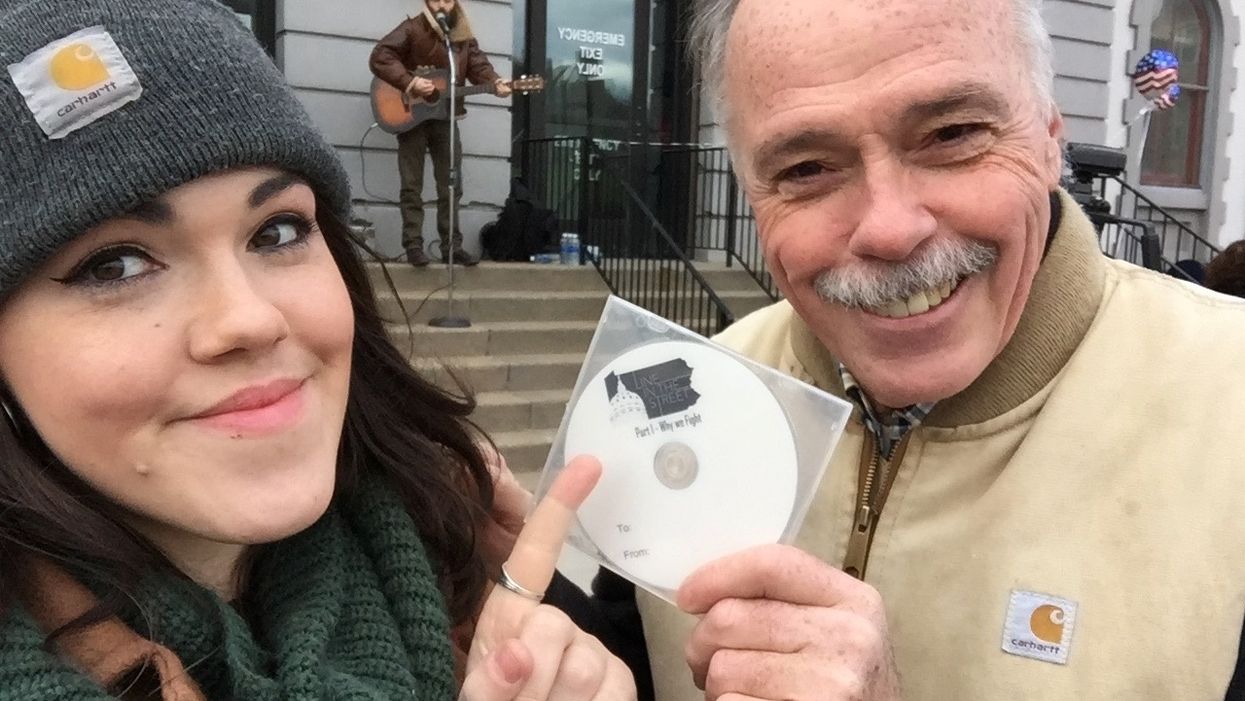When judges in North Carolina last week struck down the state's legislative maps, a potential watershed in the fight against partisan gerrymandering, the moment felt particularly familiar to moviemaker Bob Millman.
That's because he and his daughter Rachel Millman spent two years documenting a similar and also successful fight against the overtly political contours of a congressional map for Pennsylvania.
Their resulting film, "Line in the Street," debuted last year and is getting additional attention now the North Carolina map has joined the Pennsylvania map in the trash — and both for the same reasons.
Both were drawn by the Republicans in power to maximize their chances for continued electoral dominance. And both were thrown out as violations of the free association and equal protection rights of Democratic and non-affiliated voters under their states' constitutions, a fundamentally important distinction now that the Supreme Court has ruled that the United States Constitution provides no such protections for voters victimized by partisan gerrymandering.
The movie, recently re-edited to run a punchy 40 minutes (a dozen fewer than the first release) is now streaming on Vimeo on Demand and being shown at frequent screenings. On Friday, for example, it will be screened at the University of Southern California's Schwarzenegger Institute for State and Global Policy — named for the former GOP governor who led something of an anti-gerrymandering crusade in California.
"What I'm hoping is that people will start to really understand that a state's constitution means something. It's really the only guiding document for partisan redistricting reform," Bob Millman said.
It was a realization he said came to him after first hearing about the litigation that ended up bringing down the map for Pennsylvania. Regardless of the outcome, he wanted to tell this story. And, spoiler alert, he got the ending he hoped for.
The state Supreme Court ruled in January 2018 that the right to vote enshrined in the state's charter document had been violated when GOP lawmakers drew 13 House districts designed to elect Republicans and only five to benefit Democrats throughout this decade — even though the state's electorate is close to evenly split in the total congressional vote election after election.
When the GOP legislature and the Democratic governor deadlocked on what to do next, the court came up with the map used in last year's midterm — which yielded nine House members from each party.
The documentary begins with Bob explaining what gerrymandering is and how it works, using dimes and pennies to represent two hypothetical political parties. The film then dives into the Pennsylvania case, following anti-gerrymandering advocates as they lobbied against the Republican state lawmakers who controlled the mapmaking.
Trailer - Line in the Street from Robert Millman on Vimeo.
The Millmans, who describe themselves as politically progressive activists, are both lifelong New Yorkers. He's a 68-year-old self-employed home remodeler living near Albany who has worked in audio-visual production for the state bar. She is a 31-year-old Brooklynite who's social media manager for a culture and technology news website.
But they say they got to know Pennsylvania almost better than their own home state during the making of the movie. As they made the documentary, Bob and Rachel made countless filial bonding trips across the Keystone State to film demonstrations and interview subjects.
"I feel really lucky that I got to go on this incredibly unique journey with my dad," she said.
The Millmans don't bill themselves as professional documentarians, although Bob did make another film a dozen years ago — a 22-minute piece, "Bought and Sold," about how the voting rights of New Yorkers were being infringed by the state's reliance on decades-old mechanical voting booths. (A year after the film came out, the state switched to optically scanned paper ballots, still viewed as the most reliable and tamper-proof way to conduct elections.)
Rachel used her social media savvy and sizable Twitter following to boost fundraising efforts for the film. In two months, the pair raised $28,500 on Indiegogo — a shoestring budget for a documentary, but they made it work.
"If you can get people to come together in a room and watch this film, they feel not only motivated to do something, but they have someone in the room to do it with," Bob said. "If representative democracy is going to survive, we can't be isolated."
The Millmans hope their film mobilizes more people from different states to fight back against politicized mapmaking.
"Whatever your cause is, whether it's climate change or gun control, if you want that change to happen, then you have to fix gerrymandering first," Rachel said.




















Marco Rubio is the only adult left in the room